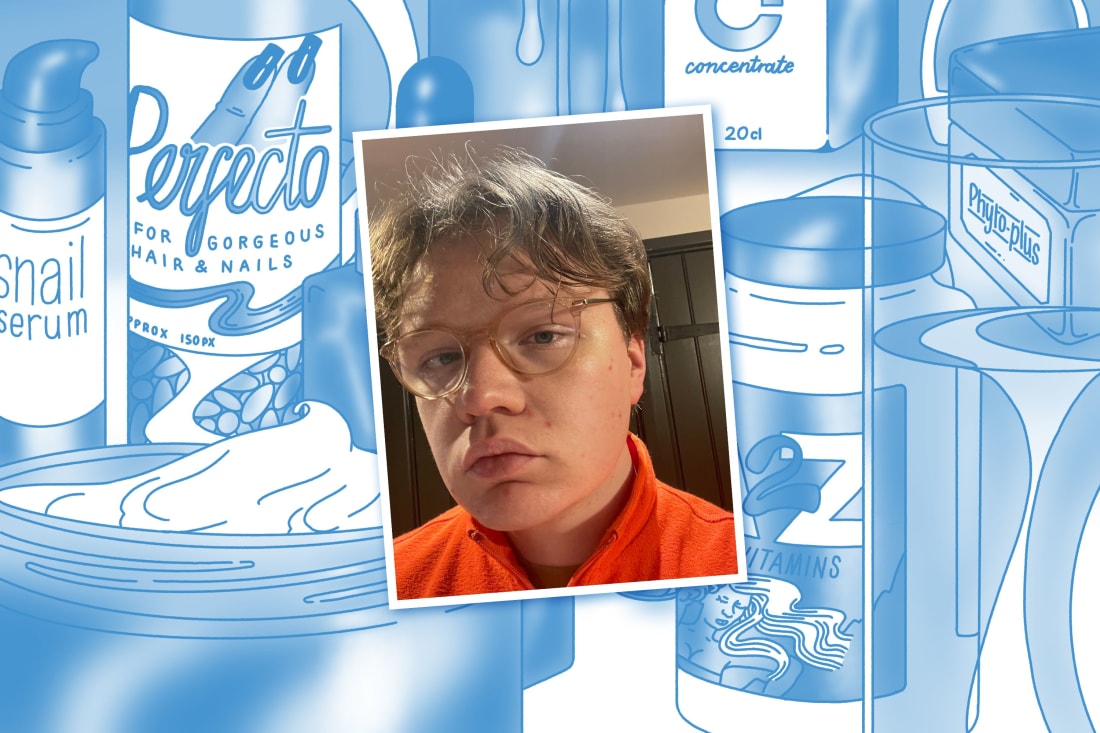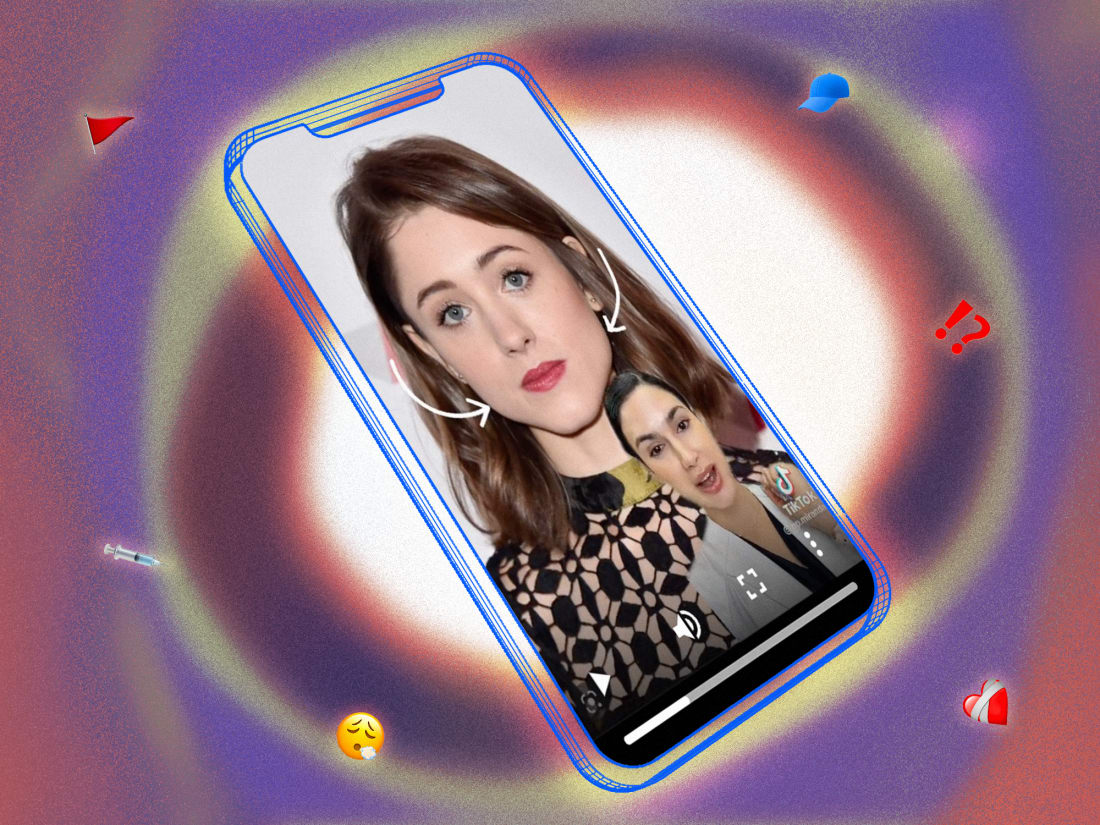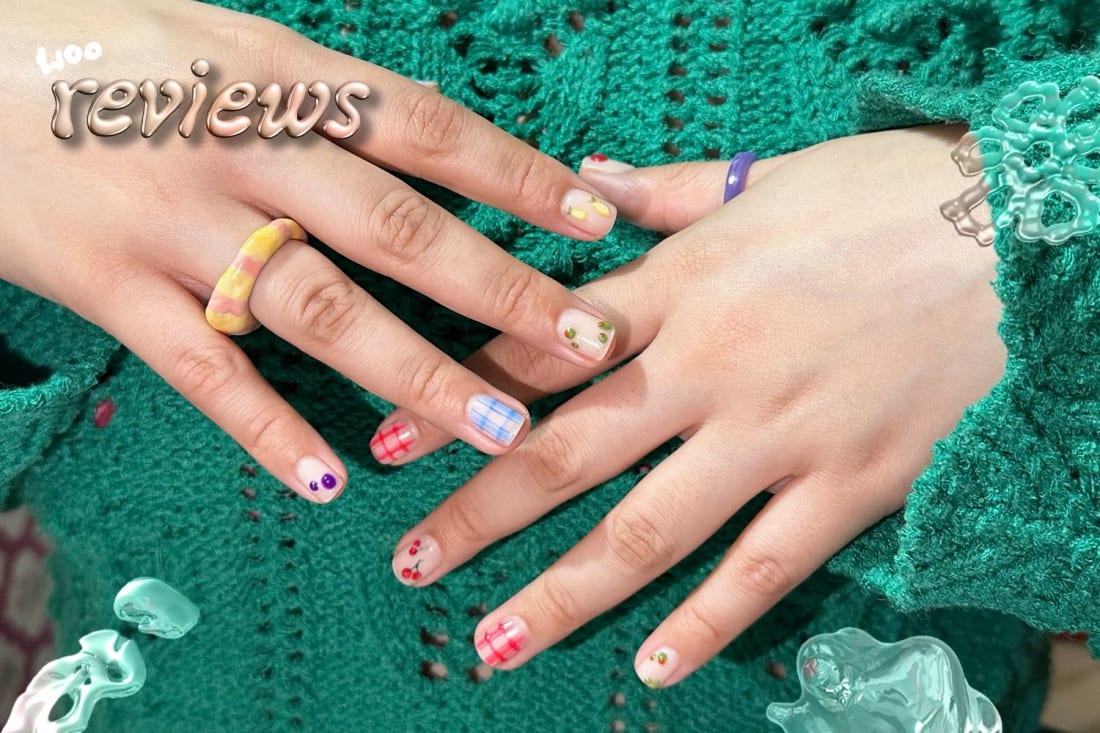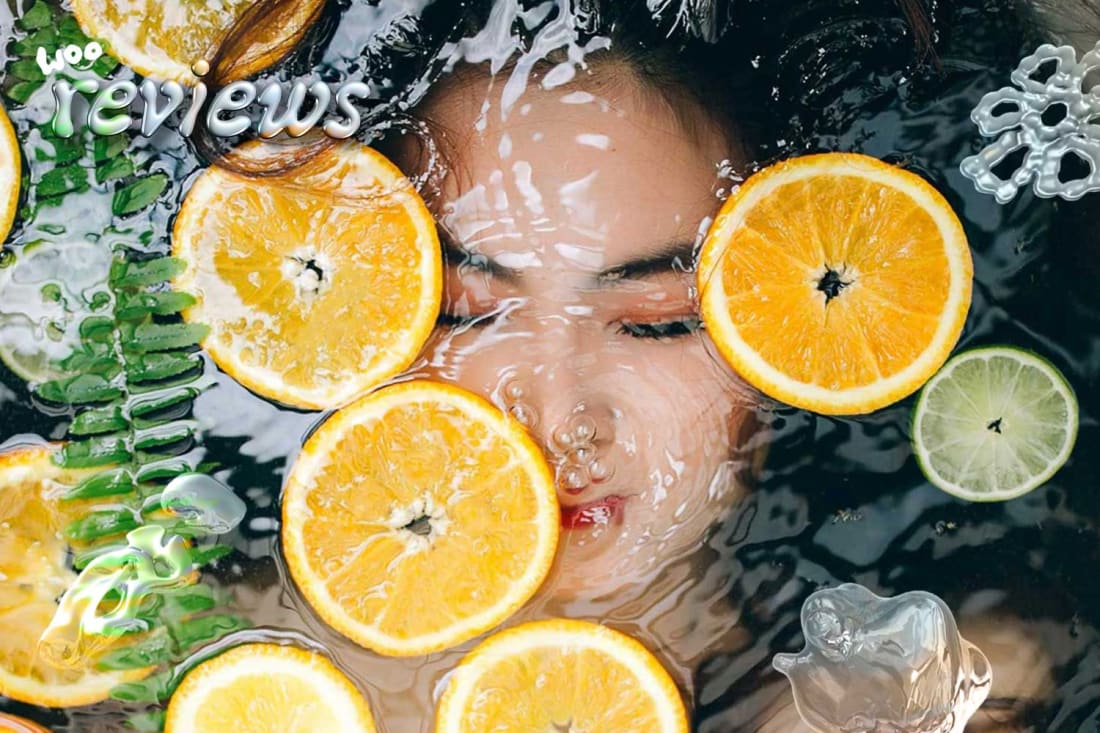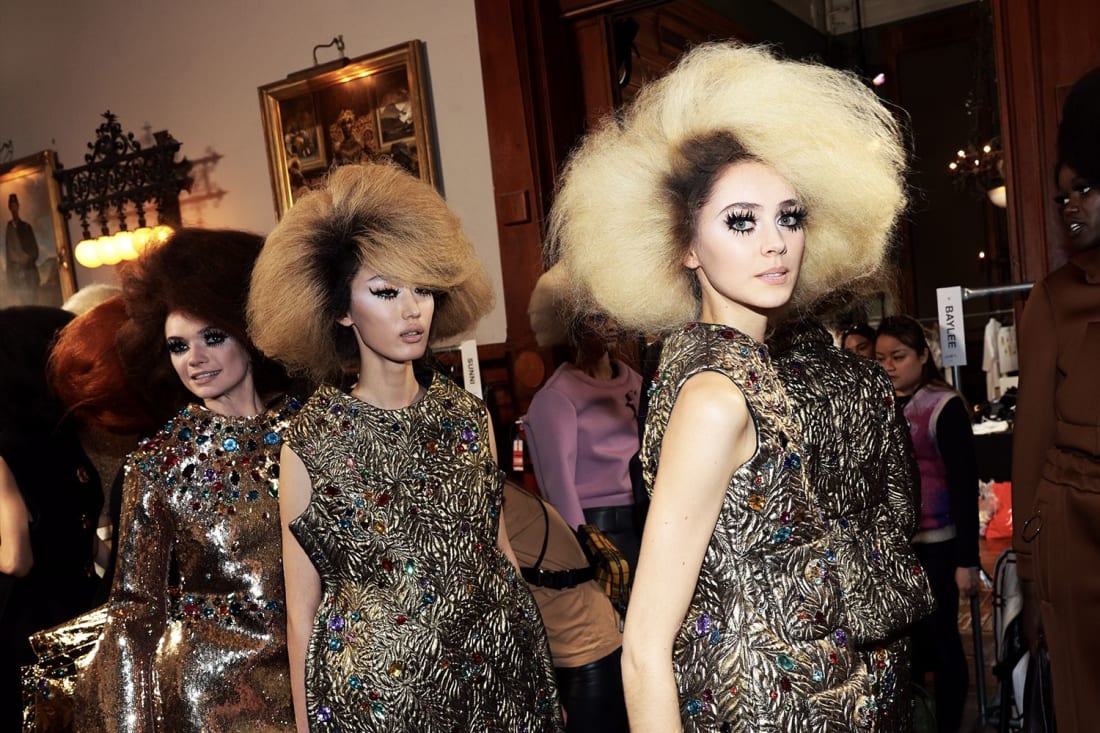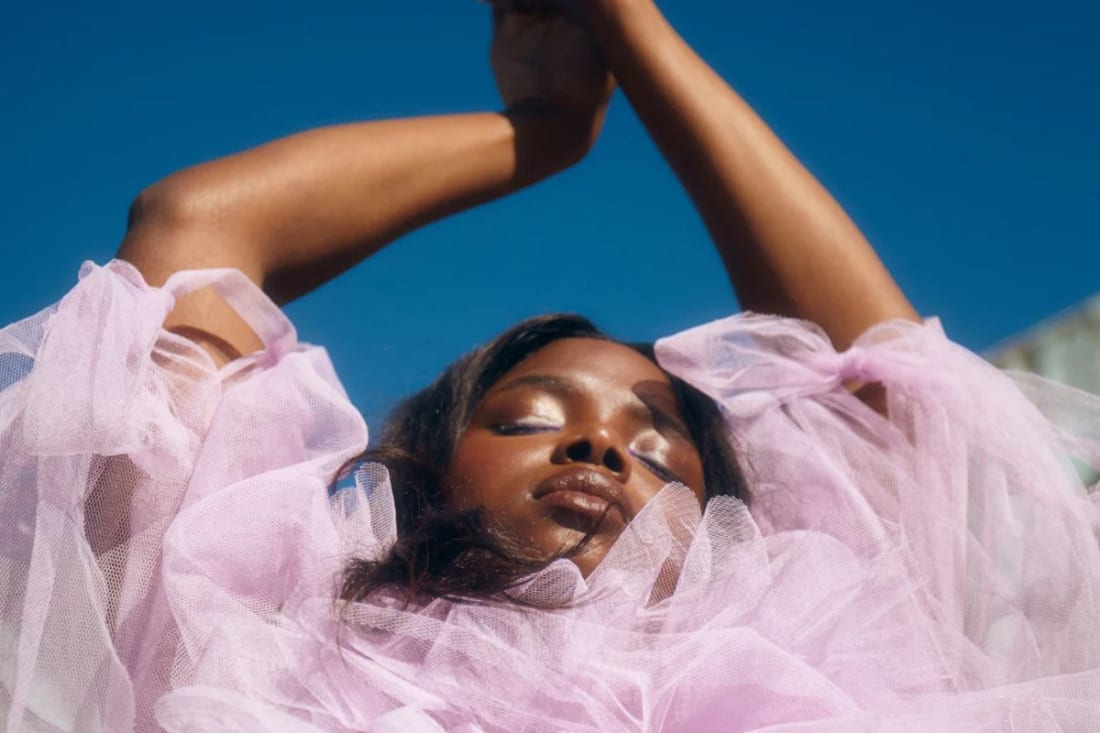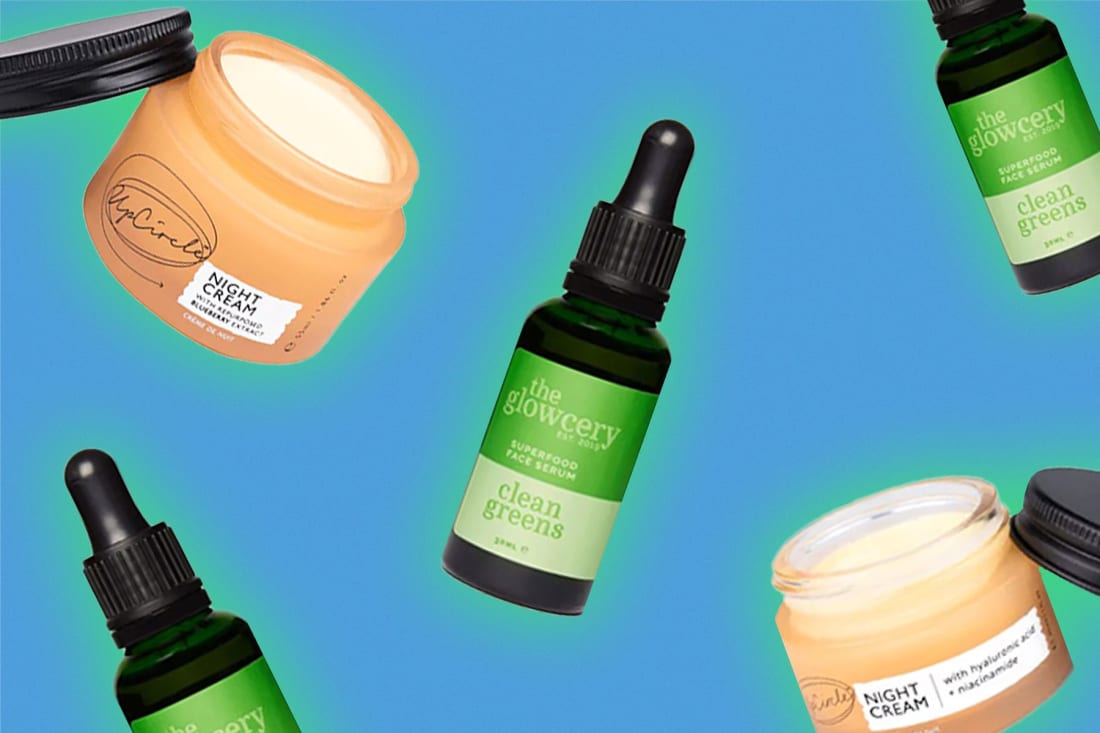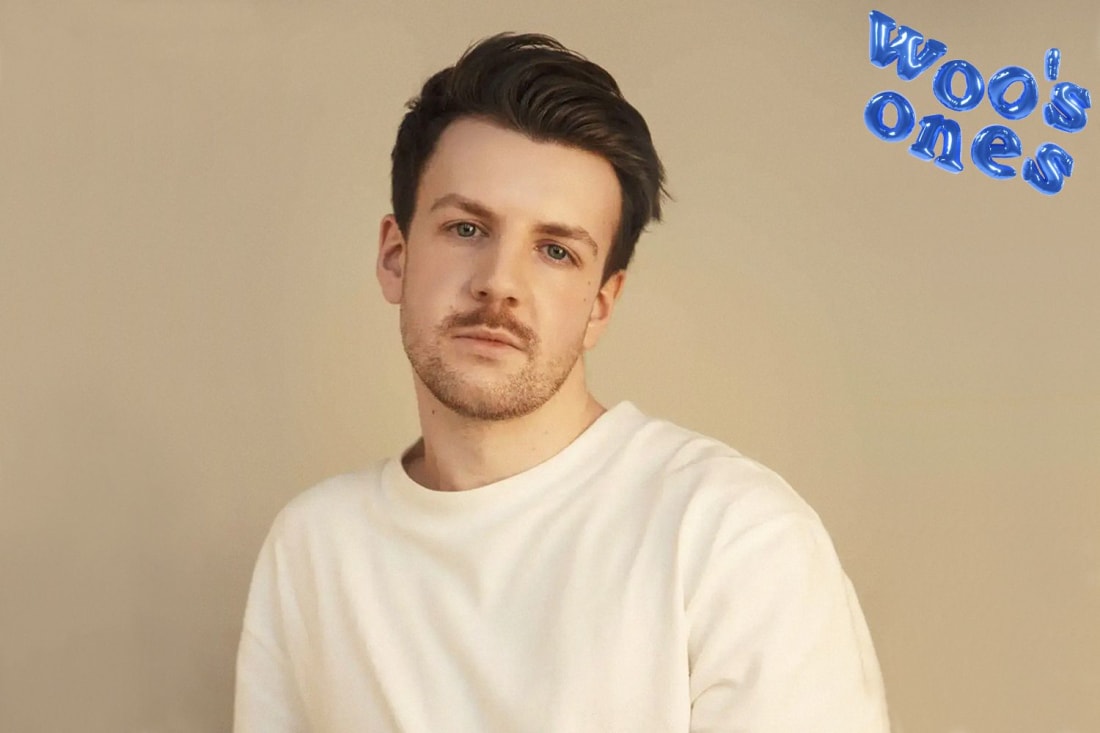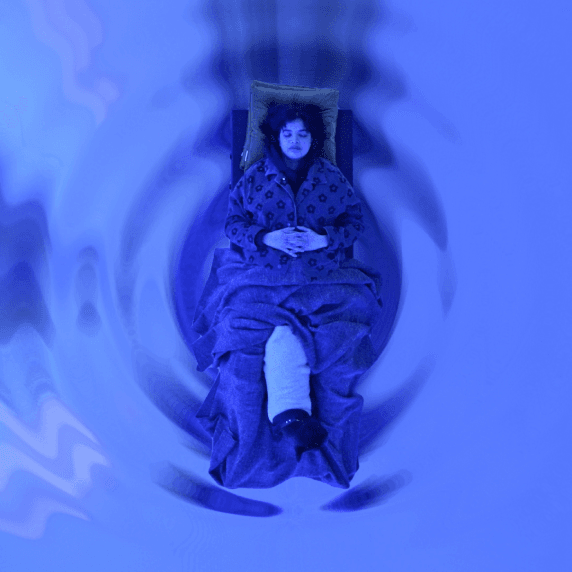Introducing the mutual aid beauty wave
Lucy Harbron writes about the comfort of having a best friend glam squad, for everything from hair do's to tattoos...
Lucy Harbron writes about the comfort of having a best friend glam squad, for everything from hair do's to tattoos...
“What do you see when you look at those pictures though? Cause I know you like a more orange copper than red,” That’s the line I tell everyone when gushing about the experience of having my friend, and qualified hairdresser, cut my hair. I go on to mention the ease of communication, the way they know exactly what I like, and what I want without any of the tricky push and pull involved in trying to get a stranger to understand your vision.
Iv Divine has been my friend for five years and is now the only person I let touch my hair. We drink coffee and turn the appointment into a catch up. I leave with exactly what I wanted and the safety blanket that if I decide I don’t like the new colour, Iv is there to fix it. Abandoning the stress of going to a stranger for self-care has suddenly made me understand all those makeover scenes in movies where friends get ready together and help each other to create their looks. Inviting a friend into the process immediately made beauty feel relaxing and fun.
I’m not alone. The mutual aid beauty wave, where people turn to skilled friends for services, is changing the face of the industry. My theory was that as more and more people picked up skills in these areas during lockdown when beauty services shut down, there’s been a realisation that we crave a more personal touch within these services than we’ve previously noted. To prove this theory, I started asking people about their experiences. I soon found a mass of people who swear by getting tattoos from friends only, staying loyal to friends of friends for their nail appointments, or like me, only letting one particular hairdresser friend go anywhere near their bangs.
Sure, the obvious reason for this pivot would be the cost of living crisis. Having a friend that does hair, nails, or tattoos for mates’ rates, or even free, significantly cuts down the cost of the luxury of self-care. Nancy Dawkins also entrusts her friend with her hair, with one reason being the stability of cost; “you need to respect your friend's craft, but it feels less likely that they’ll suddenly put up the price without explanation, a salon will.”
However, the major reason for Nancy’s loyalty to her friend’s skill lies within the community; “One way I’ve found doing that is creating and engaging in local economy - having your friends do stuff for you or working for or with people in your community.” Nancy, her friends and her sister all see the same friend for their haircuts.
This sentiment is echoed by Holly Haynes, who almost exclusively gets tattooed by friends. “I think we’re moving away from this very individualistic way of being - and people are really valuing supporting each other.” they say. Following the isolation of Covid lockdowns, the desire to create a care marketplace, where communities trade services and support as a kind of currency, seems to be more mainstream. Outside of beauty, you can see it in the rise of sites like Airtasker, a site where strangers help each other out with small tasks for petty cash, and the way community Facebook pages were used to help people self-isolating during Covid.
Holly puts it like this: “wanting to support your friends in their endeavours and wanting to build community around DIY skills is a nice mutual exchange of care.”
Beyond community, the pull towards paying friends to do beauty treatments to you also appeals on an individualistic level, which makes sense when we consider the level of intimacy that self-care rituals or tattoos involve. “Obviously getting a tattoo is intense, but being the person that’s breaking someone’s skin and permanently altering their body is also a big responsibility” tattooist Sage tells me.
Sage is Holly’s friend and has been tattooing for nearly three years. Sage recently gave Holly a new tattoo of a hand on her arm, they sat together for a couple of hours for it. “The experience was great!” Holly says, adding “it’s nice that there was already a familiarity between us so we didn’t have to do any awkward small talk and I felt a lot more comfortable with communicating about pain”.
That’s how I feel about Iv. In their chair, I don’t have to stress about perfectly communicating my desires in a five-minute consultation, or worry about whether I’m talking too much, or too little. “I think communication is such a huge part of the enjoyment of getting your hair done and to me, it’s the part that will make a client feel safe and nurtured and listened to” Iv says, adding:
“You’ve not got the barrier of professionalism, or customer service, when you’re doing your mates’ hair. The service exchange barriers have been taken away and it’s easier to say to your friends ‘are you sure you want to do that cause do you remember in 2017 when you had a micro-fringe and you really hated it’. You’ve got the context of having spent time together so it’s so much easier to communicate about what they like or they’re wanting.”
Of course, this isn’t especially new. For tattooing especially, a DIY ethos sits at the heart of the craft. Learning through tattooing friends is an easy way to fast-track practice rather than a traditional apprenticeship, or as extra work on top of formal training.
“An apprenticeship is not always accessible for people. It is often unpaid and not everyone has the means to be able to do full-time work and not be paid”, tattooist Sara tells me, having learnt her skills at home during lockdown rather than the traditional route.
Diligent tattooists still ensure complete safety when doing DIY tattoos. “Learning to tattoo has to be taken seriously,” Sara re-iterates, “knowing how to create a sterile and safe environment is so important and if these things aren’t considered or taken seriously it not only puts the person being tattooed and the person tattooing in a dangerous situation, but it also jeopardises the entire reputation of DIY tattoo artists as a whole.”
On both sides, this form of beauty exchange feels radical in its intimacy, reflecting the personal element of rituals and routines by involving only people you know personally. With both tattoos and haircuts, there is a hefty element of self-consciousness, requiring you to analyse your appearance and be vulnerable. Show your vanity. When I sit in Iv’s chair, chatting to my friend, who happens to be cutting my hair, as opposed to when I'm basking in the cold harsh fluorescent lights in front of giant mirrors of a salon, I feel good and supported.
Talking to Iv about that feeling, they articulate it perfectly; “The beauty industry is growing exponentially and every day we wake up with a new list of things we’re being told to do to ourselves, like laminate our eyebrows or oil our scalp. It’s never ending. There’s something quite subversive about witnessing all that and then disregarding it and being like I’m gonna get my pal to cut my hair the way I like it, because I trust them.”

